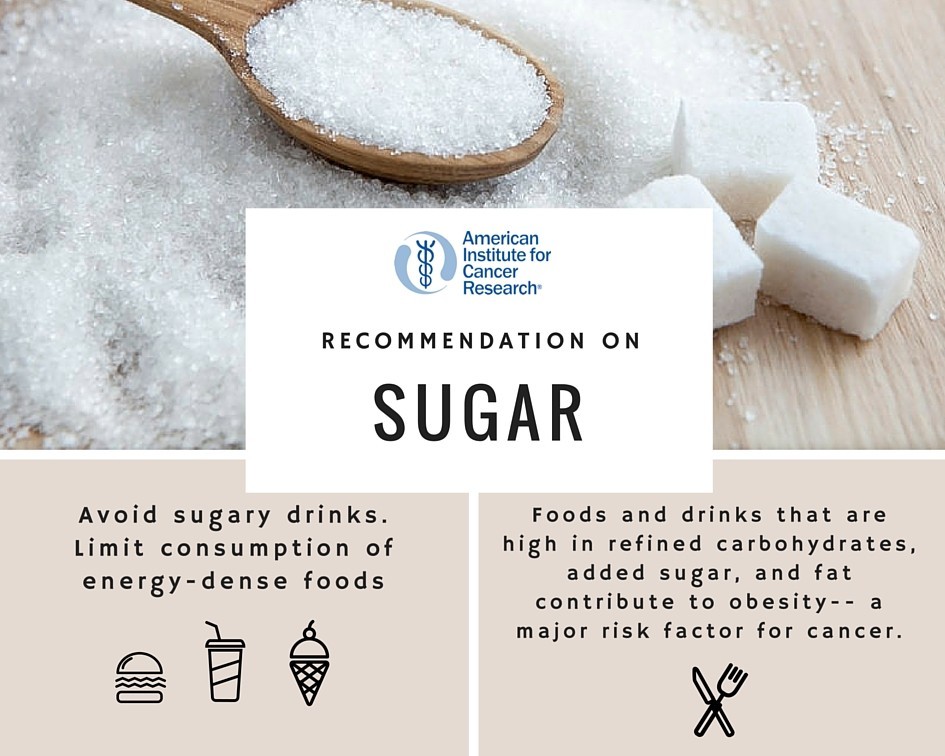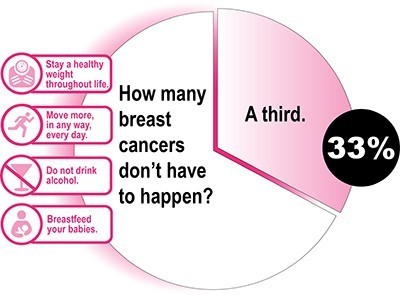One of the most common questions we get here at AICR is about sugar. And it can be confusing. The overall body of evidence suggests that sugar’s link to cancer risk is an indirect one: diets high in sugar can lead to obesity, and excess body fat is a cause of ten different cancers.
But now comes a study performed in mice that is getting a lot of media attention. It suggests a more direct link between sugar consumption and breast cancer development. Published in Cancer Research, the study is interesting, says AICR Vice President of Research Susan Higginbotham, PhD, RD, “but it’s important to recognize, that this is a single study and it is testing diets in mice, not in people.”
“Our reports, which have reviewed thousands of studies on diet and cancer, have found no evidence that sugar or added sugar directly causes cancer in humans. “We recommend limiting energy-dense foods and avoiding sugary drinks, but current evidence suggests it is not necessary to avoid sugar altogether.”

The animal study
In this animal study, researchers fed groups of mice diets with increasing amounts of the sugar sucrose – your basic white table sugar – and compared them to mice fed a sugar-free starch-based diet. These mice all were carrying breast cancer cells.
The mice consuming the sugar diets, particularly the higher amounts, developed more and larger tumors than the mice fed the sugar-free diet. Mice fed the higher amounts of sugar were also found to have more lung tumors, a sign that the cancer was more likely to metastasize.
Sucrose is made of two molecules, glucose and fructose, so the researchers performed another experiment that suggested fructose is one contributing factor. They also pinpointed a signaling pathway that appeared to be involved.
“These are findings I would like to see replicated and to see results from studies in other models and populations to see if these results hold up over time,” says Higginbotham.
Preventing breast cancer
When it comes to reducing breast cancer risk, what the evidence does show is women can take steps to reduce their risk. For postmenopausal breast cancer, excess body fat and drinking alcohol increase breast cancer risk; being active and breastfeeding lowers the risk.

For both women and men, the bottom line is this, says Alice Bender, AICR’s head of nutrition programs: fill your plate with plant foods like vegetables, beans, whole grains and fruit. “Fruit comes with cancer–fighting fiber and phytochemicals along with it’s natural sugars, glucose and fructose. Be smart and limit foods with lots of sugar added, especially sugary sodas and other drinks. That’s the best way to eat less sugar of all kinds.”
Visit our Learn More About Breast Cancer for more on reducing risk via diet, activity and body weight.
The Cancer Research study was supported by Leighton Steward and EOG Resource Inc. Core resources were supported by NIH.
Samantha Tryon, MS, RDN, contributed to this post.






Pure sugar is not natural